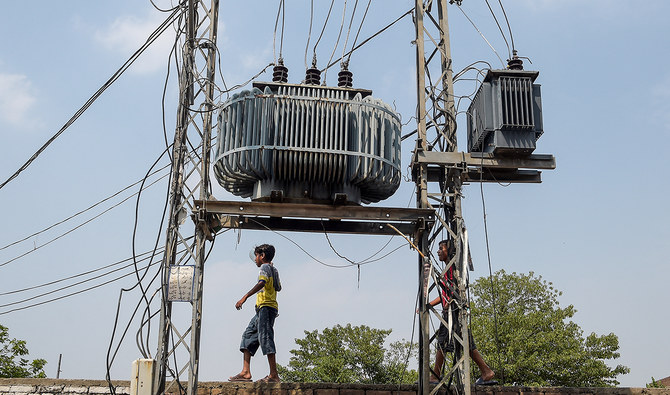KARACHI: Pakistan’s National Electric Power Regulatory Authority (NEPRA) has blamed the surging circular debt, which has ballooned to approximately Rs2.3 trillion ($8.9 billion), and inflated electricity bills on “poor governance” within power distribution companies (DISCOs).
Pakistan’s power sector has been grappling with several challenges, including the growing circular debt, increasing cost of electricity, inefficiencies in the generation, transmission, distribution and supply segments, fuel supply issues, under-utilization of efficient plants, and governance and compliance.
Governance issues have significantly contributed to the mounting circular debt, which has now reached a staggering Rs2.3 trillion, as of June 2023, showing no signs of reduction, according to a NEPRA annual report released on Friday. The primary issues facing 10 DISCOs in the country include low bill recovery and high losses due to theft.
The power sector faced these persistent challenges as DISCOs stood at a critical juncture and struggled with the pervasive issue of old infrastructure, coupled with “poor governance,” the regulator said in its 2022-23 report.
“The mounting receivables of the DISCOs have been a major concern highlighted by the Authority over the past several years, receivables for DISCOs surged to approximately Rs 1,727,104 million ($6 billion), compared to Rs1,530,500 million ($5.3 billion) in FY 2021- 22, indicating an increase of Rs196,605 million,” the NEPRA report read.
“It is believed that DISCOs’ performance can significantly improve with the involvement of private sector. Therefore, concerted efforts are required in this direction.”
In Pakistan, the government administers the effective uniform tariff that companies charge their consumers and compensates the DISCOs for the difference, commonly known as Tariff Differential Subsidy (TDS).
Companies with lower regulated tariffs than the notified ones are not permitted to pass on the benefits of the lower tariff to their consumers. Instead, they levy a Tariff Rationalizing Surcharge (TRS) on their consumers to align it. Consequently, consumers of relatively efficient DISCOs subsidize those of less efficient DISCOs.
“The practice of cross-subsidization, where consumers of efficient DISCOs bear the financial burden of underperforming counterparts, inadvertently undermines efficiency and unintentionally fosters inefficiencies,” NEPRA said, recommending “urgent rectification” of the practice which it said must be discouraged.
The lack of oversight and accountability mechanisms within DISCOs led to mismanagement and corruption, further eroding the sector’s efficiency, viability and credibility.
“The performance-based robust human resource system is required to be developed and deployed in DISCOs to improve their performance,” the report read.
The authority stressed that “poor governance in DISCOs” needed to be curbed imperatively for sustained growth and financial viability of Pakistan’s power sector.
“Effective implementation of regulatory frameworks and robust oversight is crucial to improve governance in DISCOs,” it said. “Investment in human resource development and encouraging a culture of accountability can be instrumental to bring a positive shift in the performance of these companies.”
By tackling the governance issues, NEPRA said, Pakistan could pave the way for an efficient, transparent, and consumer-centric electric power sector, ultimately benefiting both the industry and the citizens alike.
High cost of electricity in Pakistan has emerged as a critical challenge affecting all segments of the society, ranging from domestic consumers to industrial and agricultural sectors.
Amid historically high inflation in the country, the extra ordinary increase in the price of electricity had badly disrupted life of an ordinary man, NEPRA acknowledged.
This price escalation emanated primarily due to increase in the prices of essential primary energy resources such as coal, oil and gas in the international market and drastic devaluation of Pakistani currency, which intensified financial strain on the power sector and consumers.
During the fiscal year 2022-23, thermal generation, including imported fuels, accounted for around 62 percent of the total generation capacity. Generation cost, around 83 percent, was the predominant factor, affecting per unit electricity price. Even a minor change in generation cost impacted the overall consumer-end tariff, according to the report.
A significant contributor to high electricity costs was the operation of old, less efficient plants in both public and private sectors. Many public sector plants, built in the early 1980s, exhibit efficiency as low as around 30 percent or lesser, and have become economically unviable and therefore need to be retired immediately.












